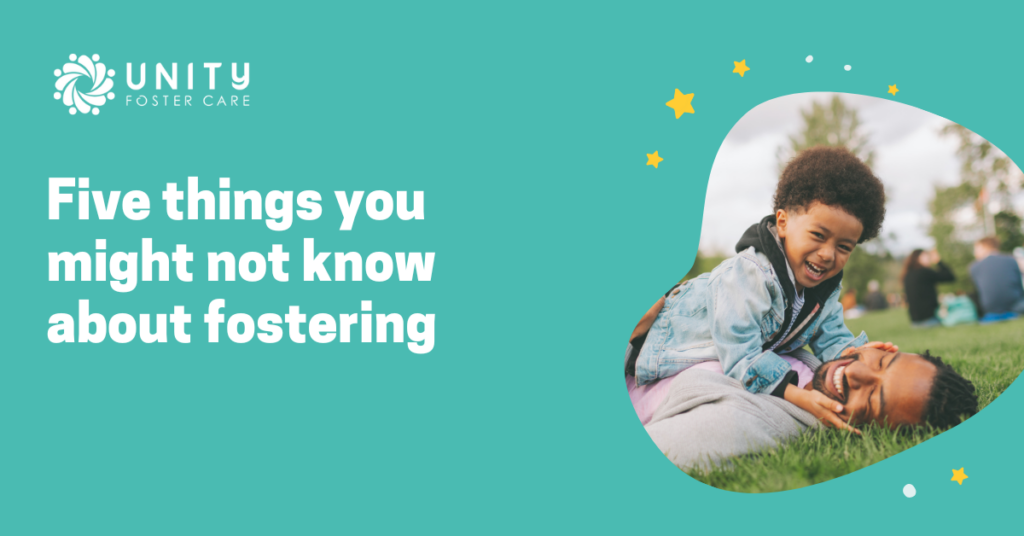Five things you might not know about fostering

Unfortunately, misconceptions surrounding fostering lead many potential foster carers, who are able to provide children with the support and stability they need, to rule themselves out before they’ve even applied.
At Unity Foster Care, we want to share the realities of fostering. In this blog post, we’ll dive into five truths about fostering that might surprise you.
1. Fostering and adoption are very different
Fostering and adoption both offer love and stability to a young person, but they are two very different journeys. Adopting a child is a permanent and long-term commitment, in which the child becomes a legal member of your family. Fostering, on the other hand, is a temporary commitment. The aim is often to reunite the young person with their biological family at the right time. Although fostering is temporary, the lengths of the placements vary.
2. Is fostering a career choice?
Becoming a foster carer is an incredibly fulfilling and rewarding role – it can also be a full-time job! At Unity Foster Care, all our foster carers receive a generous fostering allowance, paid respite care, free training, 24/7 support and plenty of social events. The level of allowance depends on the needs of the child or young people you look after, but as a guide, we offer between £370 and £985 per week when your placement starts.
If you’re thinking about fostering alongside a part-time job, that’s fine too, depending on the circumstances. According to The Fostering Network, nearly 40% of foster carers combine fostering with other work. As long as you can provide the love and support your foster child needs, and you’re able to attend regular appointments, you can still make a difference
3. Does a young person have to move out at 18?
When foster children turn 18, they’re no longer considered ‘looked after children’ – and foster carers become ‘former foster carers’. But this doesn’t mean you can’t continue living together. Through the ‘staying put’ arrangement, young people have the opportunity to stay with their foster family until they’re 21 (or longer if they stay in higher education or training). Although levels of financial support decrease, most former foster carers still receive an allowance to cover reasonable costs until the care leaver turns 21.
4. Can you foster if you’re single?
You don’t need to be married or in a relationship to foster. Single people can, and do, become fantastic foster carers.
5. Is there an age limit for foster carers?
While the legal age to become a foster carer is 21, our minimum age limit is 25 to better align with the needs of the young people we support. But, contrary to common belief, there’s no upper age limit. Age is just a number when it comes to fostering, and we have plenty of wonderful carers who choose to foster later on in life.
If you’re considering fostering, don’t let your age get in the way of your decision to apply. The most important thing is that you’re able to care for a vulnerable child and offer them a safe and nurturing environment.
What truly matters is providing a safe and loving environment. During the fostering assessment, we’ll explore your skills, experiences and support networks to make sure you’re matched with the right child.
Are you considering fostering in the North East?
If you’re based in Leeds, Yorkshire or nearby areas in the North East and are considering fostering, we’re here to support you.
If you have more questions, you might find some of the answers you’re looking for on our FAQs page. Alternatively, you can book a call with Gemma, our friendly advisor, who will gladly answer any questions and guide you through the fostering journey.
